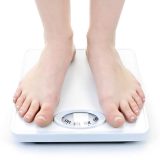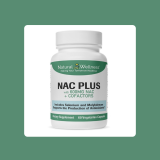To keep heart disease at bay, a good percentage of Americans would opt for taking a pill every day instead of adopting lifestyle changes and taking supplements. Accordingly, pharmaceutical companies are continuously battling to come out with the next best drug that keeps the cardiovascular system running without incident. To prevent heart attacks and strokes in patients with high cholesterol, physicians typically prescribe cholesterol-lowering medications.
Unfortunately, these medications are no exception to the rule that all drugs have side effects. Thus, there is a growing interest in natural approaches for lowering cholesterol.
About Cholesterol
An essential ingredient for life, cholesterol helps the body build new cells, insulate nerves and produce hormones. However, too much cholesterol is a major risk factor for cardiovascular disease.
Known as hyperlipidemia, excessive amounts of cholesterol in the blood causes a waxy buildup in the artery’s walls. Accumulating over time, atherosclerosis is a buildup of cholesterol that hardens the arteries. This hardening can inhibit blood flow; if the blood supply to the heart is completely blocked, there is a heart attack, while a decreased blood supply to the brain may cause a stroke.
Reducing Cholesterol
Aside from cholesterol-lowering medications, there are a number of foods and supplements that have been shown to reduce cholesterol numbers. However, the impact of minimizing cholesterol, saturated fats and polyunsaturated fats in the diet are the most important aspect of regaining cardiovascular health.
In addition to limiting red meat consumption and skipping processed cupcakes, anyone considering ways to reduce his or her cholesterol must work under the guidance of his or hers physician. Cooperating with a physician is so important because:
- If someone’s risk for heart attack or stroke is extremely high, he or she needs careful medical supervision.
- Some supplements can exacerbate or nullify the effects of medications currently being taken.
Make sure to speak with your doctor before starting any natural method to lower cholesterol and fully disclose all of the supplements you are taking.
Five Strategies
To support your artery’s health, the following cholesterol lowering strategies may be helpful:
- Soluble Fiber – Soluble fiber helps reduce cholesterol levels in two ways; it crowds fat out of the diet and leaches damaging cholesterol from the body. A diet high in pectin, a soluble fiber found in fruits such as tart apples, citrus fruits, cranberries and sour plums can reduce high cholesterol levels. According to the American Heart Association, studies with people eating a typical American diet who took the soluble fiber supplement psyllium also had significant drops in their cholesterol levels.
- Cold Water Fish – Research has shown that cold water fish containing omega-3 fatty acids reduces the impact of hyperlipidemia by making blood platelets less sticky, helping protect the linings of arteries and lowering blood pressure. Published in 2001 in the Journal of the American Medical Association, a 14-year study found that eating fish at least twice a week versus less than once a month cut the risk of strokes in half. The Nurses’ Health Study also found that eating one to three servings of fish per month cut the risk of heart disease by 20 percent, while eating at least five servings a week lowered the risk by 40 percent.
- Vitamin B3 – Also called niacin, Vitamin B3 can lower cholesterol. Niacin is available in prescription form and as a dietary supplement. The American Heart Association cautions patients to only use the prescription form of niacin. Because of its potential side effects, niacin should only be used to lower cholesterol under the supervision of a qualified health practitioner.
- Artichoke – Artichokes contain a compound called cynarin, which is believed to increase bile production in the liver and speed the flow of bile from the gallbladder, both of which may increase cholesterol excretion. A double blind, placebo-controlled German study found that 1,800 mg of artichoke extract per day for six weeks significantly lowered total cholesterol by 18.5 percent compared to 8.6 percent in the placebo group.
- Red Rice Yeast Extract – Red rice yeast extract, once sold in the United States under the name “Cholestin,” has been shown in studies to be an effective cholesterol-lowering agent. Cholestin contains octacosanol (an alcohol found in the waxy substance seen on some fruit and their leaves) as an active ingredient, which several small studies suggest can help lower cholesterol.
While these five natural strategies for reducing cholesterol are not the only options for those seeking an alternative to pharmaceuticals, they are some of the least controversial.
Conquering high cholesterol with food or supplements is not a feat that should be attempted in isolation; it requires working together with a knowledgeable physician and a lifelong commitment to healthful nutrition practices. For those willing to make the changes that will eventually wean them off drugs and lead to a healthier cardiovascular system, the benefits of lowering cholesterol naturally are priceless.




